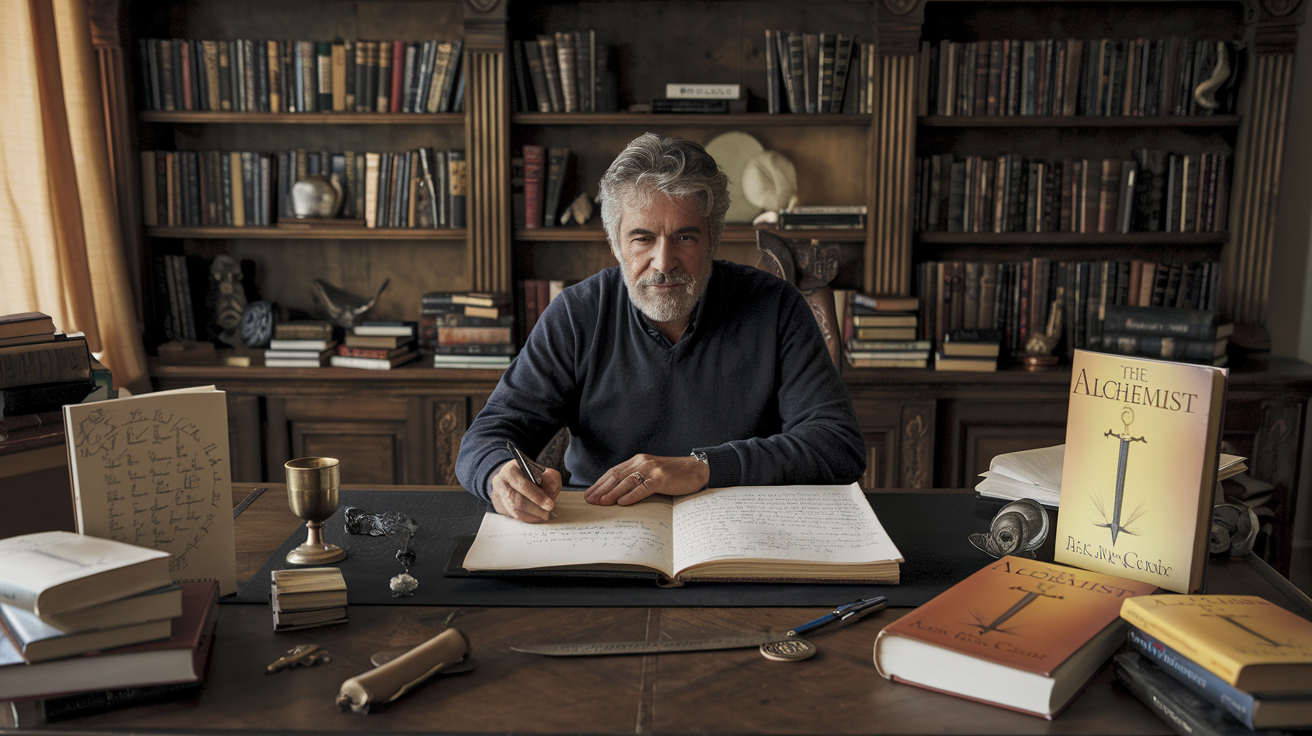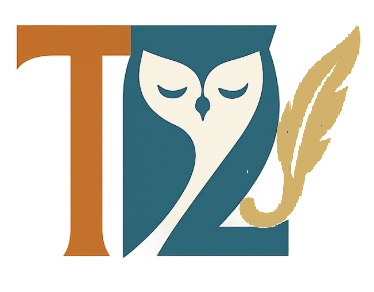Dive into my comprehensive book review and uncover hidden gems. Explore character insights, plot twists, and author perspectives. Discover why this read deserves a place in your collection.

Have you ever wondered if the treasure you’re seeking might be found in the journey itself? Paulo Coelho’s celebrated masterpiece The Alchemist poses this profound question through the eyes of Santiago, a humble Andalusian shepherd who dreams of finding treasure near the Egyptian pyramids. Since its publication in 1988, this magical tale has captivated over 65 million readers worldwide and been translated into more than 80 languages—yet its journey to success mirrors the very quest it describes.
What begins as a simple treasure hunt transforms into a life-changing odyssey of self-discovery, where dreams, omens, and personal legends intertwine with elements of mysticism and philosophy. Though initially rejected by publishers (much like Santiago faces rejection on his path), Coelho’s 182-page novel eventually became one of Brazil’s best-selling books and a global literary phenomenon. As we explore Santiago’s transformative adventure, we’ll discover why this deceptively simple story continues to resonate deeply with readers seeking meaning in their own lives and uncover the timeless wisdom hidden within its pages.
Santiago’s Journey of Self-Discovery

Santiago’s Journey of Self-Discovery
The Andalusian shepherd’s recurring dream
Santiago, a young Andalusian shepherd, experiences a recurring dream that catalyzes his extraordinary journey. In this dream, a child tells him about hidden treasure near the Egyptian pyramids. This mysterious vision plants the seed of adventure and possibility in Santiago’s mind, compelling him to question his comfortable but routine existence.
Selling his sheep to pursue treasure at the Pyramids
Driven by his dream and a desire for something more meaningful, Santiago makes the bold decision to sell his flock of sheep—his livelihood and security. This significant sacrifice represents his commitment to pursuing his Personal Legend, as he leaves behind the familiar landscapes of Andalusia to embark on a perilous journey across the desert toward the distant Pyramids of Egypt.
Key encounters: the gypsy woman, the mysterious alchemist, and Fatima
Throughout his journey, Santiago meets several pivotal characters who shape his understanding of life and purpose. The gypsy woman interprets his dream, confirming the existence of treasure and encouraging him to follow this path. Later, the enigmatic alchemist becomes Santiago’s mentor, teaching him about the Soul of the World and the universal language that connects all things. Perhaps most transformative is his encounter with Fatima, a desert woman with whom he falls deeply in love, further complicating his quest as he must choose between love and continuing his journey.
The revelation that the treasure was back home all along
In one of literature’s most profound ironies, Santiago eventually discovers that the treasure he traveled across continents to find was buried beneath a tree in Andalusia—right back where his journey began. This revelation encapsulates Coelho’s message that sometimes the greatest treasures are found not in distant lands but in returning to our origins with new eyes and wisdom gained through experience.
With Santiago’s transformative journey examined, we can now turn our attention to the deeper philosophical underpinnings of the narrative in the next section: Core Themes Explored in The Alchemist. These themes—including personal destiny, the unity of nature, and the importance of listening to one’s heart—provide the foundation for understanding why this simple fable has resonated with millions of readers worldwide.
Core Themes Explored in The Alchemist

Core Themes Explored in The Alchemist
Now that we’ve followed Santiago’s transformative journey of self-discovery across deserts and continents, let’s delve into the profound themes that make “The Alchemist” such a resonant tale for readers worldwide.
Personal Legend – Discovering and Pursuing One’s True Purpose
At the heart of Coelho’s masterpiece lies the concept of the “Personal Legend,” which represents an individual’s ultimate destiny or purpose in life. Santiago’s quest for treasure at the pyramids embodies this pursuit, which begins after he meets with Melchizedek, the wise old man who introduces him to this life-changing concept. Throughout the narrative, we see how Santiago breaks away from familial expectations to follow his dreams, demonstrating that discovering one’s Personal Legend often requires courage to depart from conventional paths. The recurring concept of “Maktub” (“It is written”) reinforces the idea that while our destinies are preordained, they still require our active participation and effort.
Alchemy as a Metaphor for Personal Transformation
Coelho brilliantly uses alchemy as a metaphor for Santiago’s personal growth. The traditional alchemical process of turning lead into gold symbolizes Santiago’s transformation from a simple shepherd to a wise individual who understands life’s deeper truths. Central to this theme is the Emerald Tablet, which represents the quest for wisdom and enlightenment. As Santiago learns the principles of alchemy from the Alchemist, he simultaneously undergoes his own inner transformation, discovering that the true treasure lies not in gold but in the wisdom gained through experience.
The Importance of Listening to Your Heart and Intuition
Throughout the novel, Santiago learns to trust his intuition and listen to his heart. This theme is illustrated as he develops the ability to communicate with nature and access the universal language that connects him to “The Soul of the World.” By tuning into this deeper wisdom, Santiago achieves a sense of unity with the universe. The novel suggests that true fulfillment comes from aligning personal goals with universal truths, emphasizing that wisdom comes not just from external teachings but from inner knowledge and spiritual connection.
How the Universe Conspires to Help Dreamers
Perhaps one of the most inspiring themes in “The Alchemist” is the idea that “when you want something, all the universe conspires in helping you to achieve it.” Santiago’s journey is guided by omens that help him navigate his path, reinforcing the notion that those who pursue their Legends receive cosmic assistance. Even when faced with obstacles, like the crystal merchant who hesitates due to fear of uncertainty, the narrative emphasizes that the universe provides support for those brave enough to follow their dreams. Santiago’s ability to transform the wind demonstrates his belief in this connection between personal action and universal support.
With this deep exploration of Coelho’s philosophical themes complete, we’ll next examine Paulo Coelho’s writing journey, which in many ways mirrors the transformative quest he crafted for Santiago.
Paulo Coelho’s Writing Journey

Paulo Coelho’s Writing Journey
Now that we’ve explored the core themes in The Alchemist, it’s worth understanding the remarkable journey of its creator. Paulo Coelho’s path to literary success mirrors the transformative quest depicted in his most famous work.
A. Initial rejection and subsequent success
The Alchemist, published in Portuguese in 1988, wasn’t an immediate success. Much like Santiago faced obstacles on his journey, Coelho encountered significant resistance from publishers. His manuscript was initially rejected, a setback that might have deterred less determined writers. However, Coelho persevered, demonstrating the same unwavering commitment to his “Personal Legend” that he would later preach through his characters.
B. From Brazilian bestseller to global phenomenon
Following its publication, The Alchemist first gained traction in Coelho’s native Brazil. This regional success came after his first book, “O diário de um mago” (later published in English as “The Pilgrimage”), which was inspired by Coelho’s significant journey on the Camino de Santiago in 1980. The success of The Alchemist in Brazil created momentum that would eventually propel the book onto the international stage, transforming it from a local hit to a global literary sensation.
C. Translation into 80+ languages and 65+ million copies sold
From its humble beginnings, The Alchemist has achieved extraordinary global reach. The novel has been translated into numerous languages, making its universal message of following one’s dreams accessible to readers worldwide. This extensive translation effort, spanning more than 80 languages, has helped the book sell over 65 million copies globally, cementing its status as an international bestseller and cultural touchstone.
D. Coelho’s philosophy on the free distribution of his work
Perhaps most remarkable about Coelho’s approach to publishing is his embrace of modern technology and unconventional distribution methods. Unlike many authors protective of their intellectual property, Coelho has utilized blogging to connect directly with his readers. More significantly, he made his works available for free online, demonstrating a belief that wider accessibility of his ideas took precedence over maximizing profits. This philosophy aligns with the themes in The Alchemist about abundance and following one’s heart, suggesting Coelho truly lives by the principles he espouses in his writing.
With Paulo Coelho’s personal journey and publishing philosophy explored, we can now turn our attention to the literary impact and critical reception of The Alchemist, examining how the book has been received by critics and readers alike over the decades since its publication.
Literary Impact and Critical Reception

Literary Impact and Critical Reception
Now that we’ve explored Paulo Coelho’s writing journey, let’s examine how The Alchemist has influenced the literary world and how critics and readers have received this phenomenal work.
Blending magic, mysticism, and philosophy in storytelling
The Alchemist has earned its place as a modern classic through its unique blend of magical elements, mystical concepts, and philosophical insights. Published in 1988, Coelho’s novel has achieved remarkable success, selling over 65 million copies and being translated into more than 80 languages. This widespread appeal stems from the book’s accessible storytelling approach that weaves profound themes of destiny, spirituality, and self-discovery into an allegorical narrative that resonates with readers worldwide.
Critical perspectives: simplistic prose vs profound message
Despite its commercial success, The Alchemist has generated polarized critical responses. Many critics, including Chris Wright, have questioned the philosophical depth of the novel, describing its underpinnings as superficial and rooted in New Age ideology. Wright specifically critiques the book’s emphasis on personal desire and destiny as simplistic and reflective of American capitalist values.
Critics argue that the novel’s straightforward messages about following one’s dreams and listening to one’s heart are overly simplistic or even clichéd. The concept of the “Personal Legend” has drawn mixed reactions—while many find it motivating, others contend that it oversimplifies the complexities of personal and social responsibilities and ignores systemic barriers faced by many people globally.
Some critics have also raised concerns about cultural sensitivity, citing stereotyping and cultural appropriation in the novel’s portrayal of foreign cultures and spiritual beliefs. Additionally, the character development, particularly of Santiago, has been criticized as one-dimensional and lacking emotional complexity.
Enduring popularity across generations
Despite these criticisms, The Alchemist’s enduring popularity cannot be denied. The novel continues to attract new readers across generations, highlighting a collective yearning for hope and self-discovery. Its allegorical nature and philosophical insights have proven to be timeless, even as some find the narrative style too didactic.
Nearly 3.9 million ratings and widespread reader acclaim
The Alchemist has garnered nearly 3.9 million ratings from readers worldwide, demonstrating its remarkable reach and impact. While literary critics may debate its merits, the novel’s ability to inspire and motivate readers remains undisputed. Even Wright, despite his reservations about the book’s messages, concedes that myths like those presented in The Alchemist can play a vital role in sustaining individuals through life’s challenges.
With this understanding of how The Alchemist has been received by critics and readers alike, we can now turn our attention to the next section, where we’ll explore the key life lessons that have made this novel so impactful and continue to resonate with millions of readers around the world.
Key Life Lessons from The Alchemist

Key Life Lessons from The Alchemist
Now that we’ve examined the literary impact and critical reception of Paulo Coelho’s masterpiece, let’s delve into the profound wisdom that has made this novel resonate with millions of readers worldwide. The Alchemist offers timeless lessons that extend far beyond its pages into our daily lives.
The courage to pursue dreams despite obstacles
One of the most powerful teachings from The Alchemist is the importance of pursuing our dreams regardless of the challenges we face. Through Santiago’s journey, Coelho demonstrates that fear often poses a greater barrier than actual obstacles. The novel encourages us to pursue our “Personal Legend” even when uncertainty looms. Santiago’s determination to follow his dream despite numerous setbacks illustrates that perseverance is essential for achieving meaningful goals. As the reference material suggests, resilience is key, and the secret to success involves persistence through failures rather than avoiding them altogether.
Recognizing and interpreting life’s omens and signs
Coelho emphasizes the significance of being attuned to the universe’s signs and omens. Throughout Santiago’s adventure, he learns to observe and interpret subtle cues from his surroundings. These omens serve as guideposts, enhancing our intuition and directing us along our personal journeys. The novel teaches us to develop awareness of these signals, suggesting that the universe communicates with us through everyday experiences. By paying attention to these signs, we can navigate life’s complexities with greater wisdom and clarity.
The journey matters as much as the destination
The Alchemist powerfully illustrates that the path to achieving our dreams is as important as the achievement itself. Santiago’s experiences teach readers to appreciate the process, learn from challenges, and recognize the significance of people encountered along the way. The novel shows that personal growth occurs throughout the journey, not just upon reaching the destination. Each step shapes our character and provides valuable lessons that transform us. This perspective encourages us to live in the present moment, finding joy and fulfillment in our current circumstances rather than fixating exclusively on future goals.
Finding treasure in unexpected places
Perhaps most poignantly, Coelho’s novel reveals that the treasures we seek often exist in unexpected locations. Santiago’s quest ultimately leads him to discover that what he sought was closer than he imagined. This lesson teaches us to look beyond conventional definitions of success and wealth, recognizing that true riches may lie in relationships, experiences, and self-discovery. The novel suggests that stepping outside our comfort zones fosters growth and transformation, allowing us to find value in places we might otherwise overlook. By serving others and contributing to the well-being of those around us, we often discover meaningful treasures that far surpass material wealth.

Paulo Coelho’s “The Alchemist” stands as a timeless testament to the power of following one’s dreams. Through Santiago’s journey from Spanish shepherd to spiritual seeker, readers discover profound lessons about listening to their hearts, recognizing life’s omens, and embracing personal transformation. The novel’s blend of mysticism, philosophy, and adventure has resonated with millions worldwide, transcending cultural boundaries and inspiring generations to pursue their own “Personal Legends.”
As we reflect on the literary impact of this remarkable work, which has sold over 65 million copies and been translated into more than 80 languages, we’re reminded that the true treasure often lies not in our destination but in our journey. Whether you’re reading “The Alchemist” for the first time or revisiting its wisdom, Coelho’s masterpiece invites you to consider your path and the dreams that await your courage to pursue them. What treasure might you discover if you dared to follow your heart’s calling?
